November 2011 Newsletter
Welcome to the November 2011 issue of the Global Washington newsletter. If you would like to contact us directly, please email us.
IN THIS ISSUE
- Note from our Executive Director
- Featured Organization: Global Visionaries: Building Tomorrow’s Leaders
- Changemaker: Ellen Taussig and the Art of Building a Universal Vision of Education
- Welcome New Members
- Announcements
Note from our Executive Director
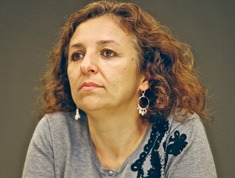
Greetings,
As 2011 draws to a close, we look back on the work we did this year—both our own and that of our member organizations—with a feeling of accomplishment and excitement about what the future holds. We are also grateful for the support of our members, our generous sponsors and donors, our volunteers, and many others who have helped make this year successful. Some highlights from 2011:
- Policy events stressed the importance of foreign aid. Two events this year–one featuring Representative Adam Smith and several leading nonprofit advocates and one a conversation with USAID Administrator Rajiv Shah–helped inform our local global development community and increase advocacy around development-related foreign policy.
- Over 350 convened at our 3rd Annual Conference. This years’ conference focused on “Opportunities and Obstacles in Turbulent Times” and included a wide array of speakers and thought leaders from the business, nonprofit, and philanthropic sector.
- Spotlight on global education. Global Washington brought together educators, policymakers, nonprofit leaders, and other stakeholders from across the state to form the Global Education Initiative. Its focus is to develop recommendations for creating a shared K-20 education strategy for the state of Washington. Over 150 of these stakeholders came together in person at Seattle University for a day-long summit to discuss this topic and finalize recommendations.
- Increasing awareness on Global Action Day. The mayor of Seattle proclaimed November 1st, 2011 as Global Action Day—a day to celebrate the achievements of Washington’s development sector. To celebrate Global Action Day, Global Washington, with the help of several member organizations, launched an extensive public relations campaign to increase public awareness about global development work.
- Community engagement in our ongoing programming. Global Washington convened numerous smaller events and workshops this year. These workshops explored a range of topics from microfinance, to working in Latin America, to utilizing social media in a nonprofit setting.
- New member resources. We were pleased to launch several new web resources for our members and the broader community, including a map and directory of Washington’s global development organizations, an online career center, and a member giving platform.
We will soon announce our plan for Global Washington’s work in the upcoming year—we hope that you are ready to take part in more exciting events and initiatives!
We could not have achieved any of our work without your support, attendance at our events, and most importantly, your care and concern for making the world a better place for all of us to live. We thank you for being a part of our community in 2011 and we look forward to continued collaboration in 2012.
In unity,
![]()
Bookda Gheisar, Executive Director
Featured Organization
Global Visionaries: Building Tomorrow’s Leaders
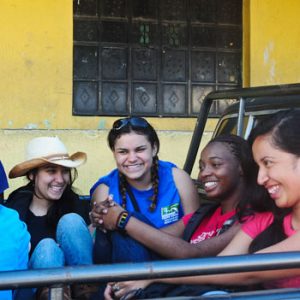 Take teenagers from south Seattle or Mercer Island to observe garbage sorting at a dump in Guatemala to learn about subsistence living, and you might just change their lives. Such has been the case for participants of Global Visionaries (GV), the Seattle-based program empowering youth to become active leaders and global citizens. It’s a program built from founder Christopher Fontana’s belief that today’s youth can be the leaders of today when given the opportunity. GV organizes both year-long and intensive programs, each culminating in a cultural immersion trip to Antigua, Guatemala. Key to the programs’ success is the socio-economic, racial and ethnic mix of participants, who learn from each other to face social biases and work together:
Take teenagers from south Seattle or Mercer Island to observe garbage sorting at a dump in Guatemala to learn about subsistence living, and you might just change their lives. Such has been the case for participants of Global Visionaries (GV), the Seattle-based program empowering youth to become active leaders and global citizens. It’s a program built from founder Christopher Fontana’s belief that today’s youth can be the leaders of today when given the opportunity. GV organizes both year-long and intensive programs, each culminating in a cultural immersion trip to Antigua, Guatemala. Key to the programs’ success is the socio-economic, racial and ethnic mix of participants, who learn from each other to face social biases and work together:
“As someone coming from the south end of Seattle, getting to know other kids from Mercer Island along with my other Cleveland High School peers was a powerful thing. Stereotypes are destroyed and I think we are all better for it.”
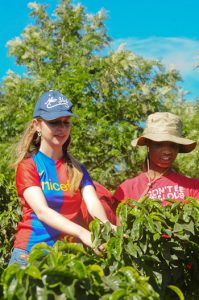 Global Visionaries pushes the youth to confront their comfort zones, tackle challenging social issues, fundraise for their trips and continue to apply the lessons learned for years to come. And it works. Another participant’s observation:
Global Visionaries pushes the youth to confront their comfort zones, tackle challenging social issues, fundraise for their trips and continue to apply the lessons learned for years to come. And it works. Another participant’s observation:
“ I was once an oblivious teenager unaware of what was really happening in the world around me, but since being a part of Global Visionaries I am dedicated not only to being aware of what is going on in the world, but dedicating my life to helping people and making whatever difference I can.”
Some students continue their involvement, serving on the youth board, or volunteering for longer in Guatemala. Last year, GV surveyed 526 alumni to find out how the programs impacted their life experiences and choices made post high school. The results from the 40% that responded are impressive:
- More likely or much more likely to take on leadership positions: 84%
- Agree or strongly agree GV made them more likely to advocate for social justice: 90%
- More likely or much more likely to reduce their ecological footprint: 82%
- More likely or much more likely to participate in community service or volunteer work: 87%
Seattle International Foundation provided Global Visionaries its initial funding, and now as a more established organization, GV is attracting more corporate and foundation support. For example, 110 Consulting, a Bellevue-based technology and business consulting firm picked GV to be their philanthropic partner. Still the organization is quite grassroots, running on volunteer and internship power to manage the myriad programs and leadership classes.
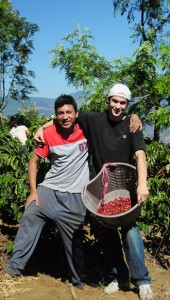 Fontana sees today’s youth as much more capable than they are given credit for. “The single most effective reform that we can make in education is to get out of the way of the youth,” he opines. “If we simply give youth ownership over their own education [they’d be] fired up about their education. There wouldn’t be any apathy.”
Fontana sees today’s youth as much more capable than they are given credit for. “The single most effective reform that we can make in education is to get out of the way of the youth,” he opines. “If we simply give youth ownership over their own education [they’d be] fired up about their education. There wouldn’t be any apathy.”
At the recent Global Washington Summit on Global Education, Treshawn Jackson, a senior at Chief Sealth High School in West Seattle, looked over the audience of educators and administrators and gave them a challenge: “How can you, as the powerful people that you are, make teaching more comfortable with students. Students need to feel more confident in the classroom.” Treshawn is enrolled in the Global Leadership (GL) class, another program of Global Visionaries, that focusing on peer-to-peer learning and service learning while building students’ leadership abilities and awareness in social and environmental justice.
Innovative? Absolutely. Easy to do? “I’m not going to lie to you, it gets messy and at times frustrating,” stated Fontana, one of the masterminds behind the methodology and curriculum. “Everyone is responsible to teach one another and regularly takes on those tasks the traditional teacher does from the most perfunctory to the most sophisticated. “
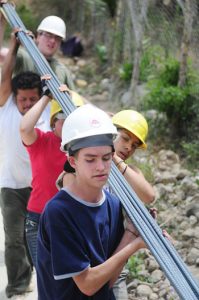 Hearing Treshawn’s testimonials about how engaged and involved all of the students are in class would inspire any educator to jump on board, and doing so does require, as Fontana put it, “high schools and teachers who will champion the class and who appreciate the innovate methodology that is required.”
Hearing Treshawn’s testimonials about how engaged and involved all of the students are in class would inspire any educator to jump on board, and doing so does require, as Fontana put it, “high schools and teachers who will champion the class and who appreciate the innovate methodology that is required.”
Global Visionaries will be bringing a new model of fundraising to the table, literally. On March 3rd, 2012, GV’s youth participants will be co-hosting dinners and leading dinner conversations, or “sobremesas” at restaurants throughout Seattle and other venues, including private homes. It will be a chance to meet others, learn about important issues and enjoy the energy that Global Visionaries inspires. If you’d like to cohost, Fontana encourages you to get in touch.
Any adult perplexed by today’s youth will enjoy hearing the stories of GV’s participants and how transformational the program has been. Simply put from one: “To be blunt, it changed my life.”
For more details on Christopher Fontana and Global Visionaries, please visit Global Washington’s December 2009 newsletter.
Changemaker
Ellen Taussig and the Art of Building a Universal Vision of Education
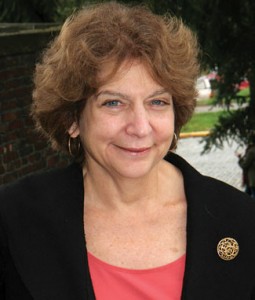 In 1955, Ellen’s parents took her to New York’s Museum of Modern Art to see The Family of Man photography exhibit. Those images and their honest portrayal of the human experience enchanted her. She spent long afternoons after the exhibit looking through her parents’ coffee-table copy of the book of photographs, and then bought a second copy just to cut out the pictures and hang them on her bedroom walls. One photo stood out: three young farm girls standing behind a fence, looking toward the viewer.
In 1955, Ellen’s parents took her to New York’s Museum of Modern Art to see The Family of Man photography exhibit. Those images and their honest portrayal of the human experience enchanted her. She spent long afternoons after the exhibit looking through her parents’ coffee-table copy of the book of photographs, and then bought a second copy just to cut out the pictures and hang them on her bedroom walls. One photo stood out: three young farm girls standing behind a fence, looking toward the viewer.
In the 1950s, the upper west side of Manhattan was a high-density melange of immigrant families of all incomes and nationalities. Taussig, daughter of German and Austrian immigrants, recalls how her parents had to learn to adapt to school schedules and give up their European-style large noontime meals. And she remembers listening to the Puerto Rican kids playing next door, to whom she credits her street-Spanish. In high school, she took the subway uptown through the projects of Harlem to the ethnically diverse High School of Music and Art (Taussig is a classically trained pianist).
Suffice it to say, Taussig grew up recognizing and participating in the universality of people. When asked what motivates her, Taussig is quick to point out the statistic developed by Harvard molecular biologist Walter Gilbert: people differ by only one tenth of one percent. Connecting with people beyond obvious barriers is one of Taussig’s core values and constant qualities.
While studying at Bennington College in Vermont, she worked at day-care centers in New York’s housing projects. “I remember seeing the drug store with half empty shelves and within ten minutes [back home] seeing stores overflowing.” This juxtaposition of poverty and affluence triggered her to action. She recalls that one day she said, “As long as this exists, I need to do something about changing it. I need to find a way to address it.” She had found her calling.
She moved to Los Angeles with her first husband, taught inner-city kids piano, and realized that teaching fit her work philosophy of find your work by what you are doing and whom you’re with. Your work has to be infused with your passion. At Yale’s MAT (Master of Arts in Teaching) program, Taussig prepared herself for a career as a public school teacher.
However, fate would have it that there were no job openings in the public schools, but there was one at a private school in North Hollywood. Taussig laughs, recalling the “crazy and wild time” she and the other teachers, with whom she created strong bonds, experienced at this school with links to the acting world. Taussig was 24 years old at the time, looked like a teenager, and was teaching kids 10 years younger. There was no set curriculum, nor did she have one developed. “What’s great about being in a wild and crazy place,” Taussig recalls, “is that it helps you sharpen what you believe in.”
So she did what any great educator does, she tapped in to what interests 14-year-olds and started her class with her favorite book when she was their age: The Family of Man.
Forty-two years later, the Humanities Program that she and her co-teachers developed at that school begins with a study of photographs from The Family of Man. (One writing exercise for those inspired is to look at that photo of the three girls at the fence and write an internal monologue from one of their perspectives.) The Humanities Program integrates what Taussig calls the five elements of society –religious, political, economic, social, artistic – and a strong global focus. “The global piece was always very important to us,” she states. One might think this all a bit too lofty for middle and high school students, but Taussig stipulates that “one of the things we believed in so strongly is to treat high school students with respect. Do not dumb down. They can understand these concepts.”
Taussig, her husband Paul Raymond, and Mark Terry took the program to Overlake School in Redmond, Washington and then began thinking about starting their own school. “When we looked around us, we couldn’t not start a school,” she explains. “We were so sure about what education could be and didn’t see it in public or private schools.”
They founded The Northwest School in 1980 as a private middle and high school. Some might find her transition from advocate of the underprivileged to founder of a prestigious private high school just a bit hypocritical. But her goal, always, she explains, is to advance what education can (and should) be—to develop an ideal situation with a richer connection between education and culture, informed by a background in civil rights. (Raymond, who had worked closely with Martin Luther King, Jr., registering voters, also started summer enrichment programs for inner city kids.) If founding a school was necessary to achieve this goal, that is what Taussig was going to do.
The connection between education and society’s culture fascinates Taussig, who opines that the U.S. lacks the cultural underpinnings that make education possible. “It’s too strenuous to parent and teach in this society when [you] have to deal with all of these fundamental things: what are the values, how you greet one another. This makes education so hard,” she states. “Everything you need to do, you have to do it because culture isn’t doing it.”
Taussig believes that schools themselves need to create a culture for the students to embrace. That starts with the principal, who needs to prioritize creating the culture that is right for the kids and then articulate and reinforce the vision. (Taussig has also served on the advisory board for the principal training program at UW Bothell, and hopes that the program will focus more on school culture development.)
Beyond schools’ need for culture, another topic that troubles Taussig is our current information overload. “We are inundated with too much that we don’t need to know and we don’t know enough of what we need to know.” She impresses that this imbalance of information affects the mood of the country. “People still know how to be joyful, have fun, celebrate. But we sit here and get overwhelmed with bad stuff.”
It’s hard to imagine Ellen Taussig overwhelmed with bad stuff. She exudes warmth and good humor, and the sparkle in her eyes is enough to get those around her smiling, if not ready to change the world. Her philosophies could be informed in part by growing up the daughter of Holocaust survivors. “Most people are good at heart and they want good. Circumstance can cause people to act in very evil ways. Humanity’s job is to help manage the circumstances.”
In June, 2011, Taussig stepped down as Head of School of The Northwest School and stepped up to the role of Executive Director of International Leadership Academy of Ethiopia (ILAE), slated to open in 2013. She joins the two founders, Haddis Tadesse and David Makonnen, in the creation a high-caliber academy in a country with a tradition of rote learning and only 30% of the population educated. It’s the perfect opportunity for Taussig to not only guide the development of programs built on discussion, critical thinking, leadership skills, and eventually virtual networking, but also to promote that philosophy of universalism that has been the essence of her work state-side.
Their strategy is to start small, keep it manageable and grow from there. That said, Taussig never puts limits on her visions. “If you start with a notion you find a way to do it. Put everything out that you want to do you and you find a way to do it. Every part of the vision.”
One standout component of the school is that it will eventually provide the ability for students to virtually network. There are certainly kinks to work through, but Taussig emphasizes the future of education and the impact technology can have. “Kids want to change the world. They feel they can because of social media. Through technology, kids are able to see that their activism can have result,” she explained at the recent Global Washington Summit on Global Education. “There’s no dichotomy anymore between education here or there.” Taussig marvels at how easily children can connect with one another across borders and across cultures. She thinks back to those photographs in The Family of Man, and how all of those children in the book had so few means to know one another or know of one another. It’s a whole new world now, where children can learn about and from one another and build on their universalism.
There’s another photo in The Family of Man that stays in Taussig’s mind: an indigenous piper playing a wooden flute. Taussig sees the universal thread that the flute has and the music that “joins people together.” Ellen Taussig –educator, Fulbright scholar, musician, Klingenstein Fellow, administrator, visionary, New Yorker, and lover of good bread – is one of Washington State’s pipers creating a more universal world.
Welcome New Members
Please welcome our newest Global Washington members. Take a moment to familiarize yourself with their work and think of opportunities for support and collaboration!
Infections Disease Research Institute: IDRI is a Seattle-based not-for-profit committed to applying innovative science to the research and development of products to prevent, detect and treat infectious diseases of poverty. By integrating capabilities, we strive to create an efficient pathway to bring scientific innovation from the lab to the people who need it most. http://www.idri.org/
Mangrove Action Project: Partnering with mangrove forest communities, grassroots NGOs, researchers and local governments to conserve and restore mangrove forests and related coastal ecosystems, while promoting community-based, sustainable management of coastal resources. www.mangroveactionproject.org
Bill & Pat Bali Fund: We are simply a couple of relatively normal people living in Edmonds, WA (about 15 miles north of Seattle) who found a need in Bali and felt called to do what we could to assist these children break the cycle of poverty into which they were born. http://www.balifund.org/
Richter International Consulting: Dave Richter has been living and working in the international arena most of his life. He has lived as an expat in Africa and in Asia (on three occasions). He has managed 24-hour medical assistance operations in Asia and the Americas, and is fluent in Mandarin. This experience provides Richter International Consulting with the practical hands-on knowledge needed to solve the complex problems which are inherent to international assignments. http://www.richterintl.com/
Global Impact: Global Impact provides organizations and donors with effective ways to give to causes, regions and crises throughout the world. We deliver a wide range of giving solutions through an alliance of globally focused charities, management of two of the world’s largest workplace giving campaigns and partnerships to meet the needs of organizations and donors. http://www.charity.org/
Announcements
Seattle U And LDI Conference To Discuss Law And Development At The Microlevel
The Seattle University School of Law and the Law and Development Institute will hold their 2011 Law and Development Institute Conference: “Law and Development at the Microlevel: From Microtrade to Current Issues in Law and Development” on December 10, 2011, at Seattle University.
Seventeen leading speakers from seven countries will present the latest ideas and proposals on how the new form of international trade, such as microtrade, may assist poorest countries and peoples around the world to escape from worst poverty, how development finance and investment may contribute to their economic improvement, and how the international community may assist least-developed countries to resolve some of the most serious issues causing their economic and social hardships. The conference attendants may have opportunities for questions and discussions after panel presentations.
Visit the website to see conference schedule, speakers’ biographical information, and presentation summaries. On-line registration for the December 10th 2011 conference is required. For additional information about the conference, please contact Junsen A. Ohno, International Programs Administrator, at ohnoj@seattleu.edu or 206.398.4283. Questions regarding the Law and Development Institute should be directed to Professor Steve Lee at info@lawanddevelopment.net.
Global Health Nexus’ Be The Change Competition: A Great Opportunity For Students
The “Be the Change” competition, sponsored by Global Health Nexus, is an opportunity for teams of high school, community college, and undergraduate students in Washington State to create solutions, awareness, and innovation in global health, using technology, social media, the arts, and more. Participants compete for cash awards, great prizes, and public recognition from the Gates Foundation and leaders from other high-profile organizations in our state.
Interested? Act fast: the initial submission date is approaching – December 15!
For more information, resources and application forms go to Global Health Nexus at http://globalhealthnexus.org/competition/or contact info@globalhealthnexus.org. Global Health Nexus, an initiative of the Washington Global Health Alliance, raises public awareness and creates partnerships to spur innovations and accelerate the growth of our region’s global health sector.
Co-Founder And Program Director Of Heal Africa, Lyn Lusi, Receives 2011 Opus Prize
Lyn Lusi of HEAL Africa (Health, Education, Action, Leadership Africa) accepted the coveted Opus Prize at an awards ceremony held on November 2nd at Loyola Marymount University. Lusi has dedicated the last 40 years of her life to her work in Africa, beginning in 1971 as a teacher in Zaire, then continuing her work with various development organizations in Nairobi, Kenya, and Rwanda, before returning to the newly formed Democratic Republic of the Congo. Lusi and her husband Dr. Kasereka (“Jo”) Lusi founded HEAL Africa in 2000 with the commitment to eradicate poor health, poverty and oppression of women in the DRC. HEAL Africa runs a full-service training hospital in Goma and provides community-based initiatives in public health, community development and conflict resolution.
The Opus Prize is an annual faith-based humanitarian award given to unsung heroes of any faith throughout the world. Winners of the award receive $1 million to advance their work and outreach.
Global Alliance To Prevent Prematurity And Stillbirth (Gapps) Announces New Initiative For Scientists And Researchers
In partnership with Bill & Melinda Gates Foundation, Seattle Children’s GAPPS proudly launches their Preventing Preterm Birth Initiative as part of the Grand Challenge in Global Health. Grants will be awarded to scientists and researchers to discover the causes and mechanisms of preterm birth, the leading cause of infant mortality in the world. To learn more about the Request for Proposal and guidelines, visit the website. LOIs must be submitted by January 31, 2012.
Seattle University Professor Announces New Health And Social Welfare Blog
Ruth White, Associate Professor for Anthropology, Sociology, and Social Work, Global African Studies at Seattle University has started a blog called “Provoking Policy,” exploring local and global policies related to health and social welfare. The blog can be found at www.provokingpolicy.blogspot.com
Women in Innovation Summit: Launch Party This week
A launch event for the 2012 “Women in Innovation Summit—Women of the Next Fifty” will take place on December 1st in Bellevue from 6:00PM to 8:00pm. Come hear the current plans, join the conversation and help make this summit relevant. Who are women thought leaders, drivers and practitioners of innovative approaches in the areas of leadership, technology and science, in education and social change? What do women innovate? How do women innovate? What is your and your organization’s role in this?
6:00 PM to 8:00 PM
The Summit Executive Conference Center
10885 NE 4th St, Ste 100, Bellevue,WA 98004
For more information visit: http://www.womenoffifty.com/event/wof-website-launch-party/
Community Screening of American Teacher
On December 12th at 6:00pm there will be a community screening of American Teacher, a new documentary about teaching in the United States.This documentary is directed by Academy Award-winner Vanessa Roth and narrated by Matt Damon. It depicts what it is like to be a teacher in America by following four educators at different points in their careers. The screening will take place at Town Hall Seattle, 1119 8th Avenue, Seattle, 98101. The DVD will not be available until next year, so this is a special opportunity to see this film! There will be a discussion after the screening with producer Ninive Calegari, Lauren Woodman and Anthony Salcito from Microsoft Corporation, and a local education expert. The discussion will be facilitated by Warren Etheredge, founder of The Warren Report and the host of The High Bar.
For more information or to register, visit: http://townhallseattle.org/%E2%80%98american-teacher%E2%80%99-film-screening-and-discussion/